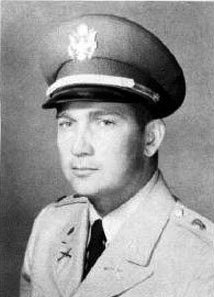Luis Posada Carriles | |
|---|---|
 Luis Posada at Fort Benning, Georgia, US, 1962 | |
| Born | February 15, 1928 Cienfuegos, Cuba |
| Died | May 23, 2018 (aged 90) Miami, Florida, US |
Luis Clemente Posada Carriles (February 15, 1928 – May 23, 2018) was a Cuban exile militant and Central Intelligence Agency (CIA) agent. He was considered a terrorist by the United States' Federal Bureau of Investigation (FBI) and the Government of Cuba, among others.[1][2]
Born in Cienfuegos, Cuba, Posada fled to the United States after a spell of anti-Castro activism. He helped organize the Bay of Pigs Invasion, and after it failed, became an agent for the CIA.[3][4] He received training at Fort Benning, and from 1964 to 1967 was involved with a series of bombings and other covert activities against the Cuban government, before joining the Venezuelan intelligence service.[4][5] Along with Orlando Bosch, he was involved in founding the Coordination of United Revolutionary Organizations,[5][6][7] described by the FBI as "an anti-Castro terrorist umbrella organization".[6] Posada and CORU are widely considered responsible for the 1976 bombing of a Cuban airliner that killed 73 people.[4][5][8][9] Posada later admitted involvement in a string of bombings in 1997 targeting fashionable Cuban hotels and nightspots.[10][11][12] In addition, he was jailed under accusations related to an assassination attempt on Fidel Castro in Panama in 2000, although he was later pardoned by Panamanian President Mireya Moscoso in the final days of her term.[13] He denied involvement in the airline bombing and the alleged plot against Castro in Panama, but admitted to fighting to overthrow the Castro regime in Cuba.[14]
In 2005, Posada was held by US authorities in Texas on the charge of being in the country illegally: the charges were later dismissed. A judge ruled he could not be deported because he faced the threat of torture in Venezuela.[15] The US government refused to repatriate Posada to Cuba, citing the same reason.[14] His release on bail in 2007 elicited angry reactions from the Cuban and Venezuelan governments. The US Justice Department had urged the court to keep him in jail because he was "an admitted mastermind of terrorist plots and attacks", a flight risk and a danger to the community.[12] The decision was also criticized within the US; an editorial in the Los Angeles Times stated that by releasing Carriles while detaining a number of suspected terrorists in Guantánamo Bay, the US government was guilty of hypocrisy.[16]
Posada died in May 2018 in Florida, where hardline elements of the anti-Castro exile community in Miami still regarded him as "a heroic figure".[17] Reporter Ann Louise Bardach called him "Fidel Castro's most persistent would-be assassin,"[18] while Peter Kornbluh of the National Security Archive referred to him as "one of the most dangerous terrorists in recent history" and the "godfather of Cuban exile violence."[17]
- ^ Ruiz, Albor. "Ruiz: Terrorist's day in court may be here". NY Daily News. Archived from the original on November 26, 2011. Retrieved December 6, 2014.
- ^ Gamez Torres, Nora (November 15, 2017). "Drugs, spying and terrorism: CIA files offer insight on life of Luis Posada Carriles". Miami Herald. Archived from the original on May 28, 2018. Retrieved May 30, 2018.
- ^ Cite error: The named reference
CNNwas invoked but never defined (see the help page). - ^ a b c Cite error: The named reference
Bomber's Talewas invoked but never defined (see the help page). - ^ a b c Lettieri, Mike (June 1, 2007). "Posada Carriles, Bush's Child of Scorn". Washington Report on the Hemisphere. 27 (7/8).
- ^ a b Kornbluh, Peter (June 9, 2005). "The Posada File: Part II". National Security Archive. Archived from the original on June 17, 2014. Retrieved May 23, 2018.
- ^ Bardach, Ann Louise (November 2006). "Twilight of the Assassins". The Atlantic.
- ^ Selsky, Andrew O. (May 4, 2007). "Link found to bombing". Associated Press.
- ^ Cite error: The named reference
LeoGrande 2014was invoked but never defined (see the help page). - ^ "Organizations Demand Cuban Militant's Arrest". Local10. April 21, 2005. Archived from the original on September 27, 2007.
- ^ "US tiptoes between terror, Castro's policies". The Christian Science Monitor. May 20, 2005. Archived from the original on July 28, 2012. Retrieved May 1, 2007.
- ^ a b Williams, Carol J. (April 20, 2007). "U.S. criticized as Cuban exile is freed". Los Angeles Times. Archived from the original on April 27, 2018. Retrieved June 13, 2018.
- ^ Kessler, Glenn (August 27, 2004). "U.S. Denies Role in Cuban Exiles' Pardon: Panama Frees 4 Convicted in Plot To Kill Castro". The Washington Post. Archived from the original on September 7, 2012. Retrieved June 13, 2018.
- ^ a b "Cuba anger at US Posada Carriles verdict". BBC. April 9, 2011. Archived from the original on November 2, 2018. Retrieved June 13, 2018.
- ^ No deportation for Cuban militant Archived July 11, 2012(Timestamp length), at archive.today, BBC, September 28, 2005.
- ^ "A terrorist walks". Los Angeles Times. April 20, 2007. Archived from the original on June 10, 2016. Retrieved December 6, 2014.
- ^ a b Peter Kornbluh, "Former CIA Asset Luis Posada Goes to Trial" Archived August 26, 2014, at the Wayback Machine, The Nation, January 5, 2011.
- ^ Bardach 2002, p. 136.